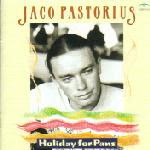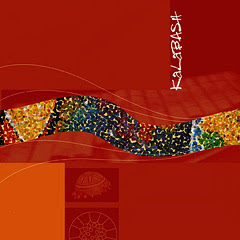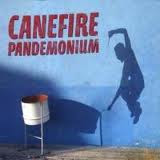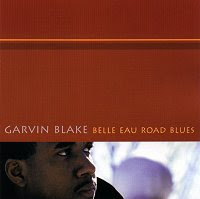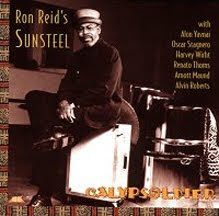I received Andy Narell's new DVD in the mail, and I couldn't wait to check it out.
Costing less than $20.00, this DVD is a bargain.
I expected a quality product from Mr Narell, And I wasn't disappointed.
Firstly, I must be brutally honest.
I was never a big Andy Narell fan. He's good , I knew that, and I've supported his music, but I really didn't know where he was coming from.
I just couldn't relate to him as I could to Professor, or Boogie or Robbie.
Without knowing them personally, I knew that those three, like myself, have all been bitten by mosquitoes in a panyard somewhere in T&T.
We've all seen the sun rise from behind our pans on a J'ouvert morning in T&T.
However, the first few minutes of the narrative "Andy and the Jumbies" from DVD one of the double DVD package changed all that.
I had heard about the pan jumbie since a child.
About the society girl who ran off and caught the jumbie, and ended up waving a flag for a steelband on J'ouvert morning; the worst thing that a member of society could possibly do in those days.
Andy knows about the jumbie, I thought. Only hard core pan people know about the jumbie!
Forget about his incredible skills! His knowledge of the jumbie established his serious pan creds with me!
This DVD package is a fine production.
In his narrative , Andy tells of his life with pan, give us his take on the pan culture, and shows his love and respect for the culture, the people and the country where the pan was born.
Andy Narell doesn't just play the pan, he lives it.
DVD 1 includes commentary by such notables ad David Rudder and Peter Minshall, whose colorful prose adds luster to an already glided package.
DVD 2 includes the actual concerts, one with Trinidad All Stars , the other featuring Andy's band in collaboration with the WDR big band of Germany, with vocals by Lord Relator.
There are many highlights of this production, including the performances of the legendary calypsonian Lord Relator, both in rehearsals and the actual concert with the WDR band, where he presented a repertoire that paid tribute to the late Lord Kitchener.
I was struck by how the German band seemed to easily adopt the phrasing and rhythm of calypso, and they did a fantastic job collaborating with the calypsonian and the steelband.
The performance featuring Trinidad All Stars at Queens Hall alone is worth the price of the package. I'm no music critic and I'll leave that to the experts, but as far as I'm concerned Andy Narell outdid himself with this production.
It is a credit to himself ,his band mates and production team, and a major contribution to increasing the profile of the pan worldwide.
Thank you for a fine product, Andy.
Every pan lover owes it to himself to purchase a copy of this DVD. It would be a bargain at twice the price.
Finally, I must mention that these are my personal thoughts, they were not solicited by anyone. I do not know Andy Narell, I'm just a pan lover.
(However, if this DVD becomes a big seller, and Andy wishes to run a lil something…..hey, I ain't too proud :)
Andy Narell, globe-trotting and pioneering steelpan jazz musician, composer and arranger chats about his beginnings in the world of steelpan in the 1960s, and the evolution of the sound that he is leading in the 2020s with a new sample library of steelpan instruments created by the legendary master tuner Ellie Mannette. And everything in between. From the West Coast of America to Trinidad to South Africa, to the French Antilles and Japan, the Narell sound and music is a standard for many on how the business of steelpan jazz performance and recording operates. Caribbean and Latin American rhythms, African pulses, post bop references all colour his music, and with a prolific output of recordings, steelpan jazz is part of the global jazz conversation. Wed, 21 Sep 2022





